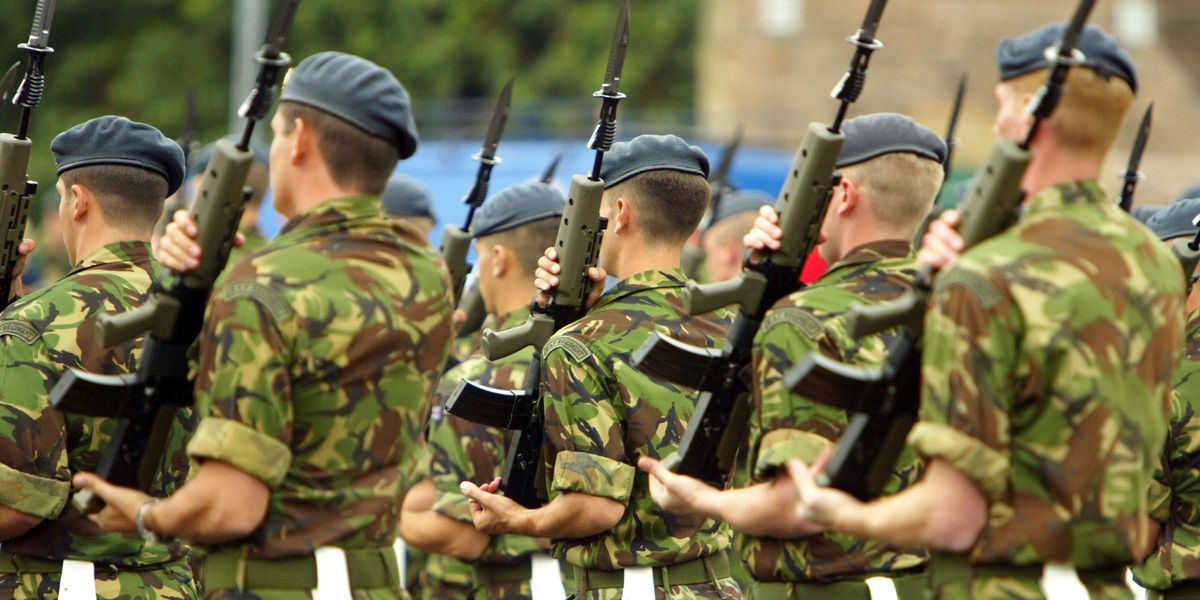LGBT veterans who were dismissed from the Armed Forces before 2000 are set to receive compensation payments of up to £70,000, the Ministry of Defence is expected to announce on Thursday.
Defence Secretary John Healey will unveil a comprehensive scheme to address historic wrongs faced by former service personnel who were forced out due to their sexual orientation.
The landmark initiative includes both financial compensation and measures to restore ranks and amend discharge records for affected veterans.
Former LGBT military personnel who were dismissed or discharged will receive a base payment of £50,000 under the scheme.
A stock image of members of the Armed Forces
GETTY
Additional payments of up to £20,000 will be available for veterans who experienced negative impacts during their service between 1967 and 2000.
The compensation payments will be exempt from income tax and means-tested benefits, ensuring veterans receive the full amount available.
The scheme will remain open for two years, with priority given to applications from terminally ill veterans.
Under the historic ban, LGBT service members faced brutal interrogation and dismissal if their sexual orientation was discovered.
Defence Secretary John Healey arrives in Downing Street, London, for a Cabinet meeting
PA
Many veterans experienced devastating long-term consequences from their dismissals.
These included diminished career prospects and being ostracised by family and friends.
Some veterans were also denied access to their military pensions, compounding the financial impact of their discharge.
The ban on lesbian, gay and bisexual people serving in the armed forces remained in place until 2000, while transgender people were officially permitted to serve openly from 2014.
Soldiers from the British Army LGBTQ+ network at the annual Pride in London parade
GETTY
The total compensation fund will amount to £75 million, significantly exceeding the £50 million recommended in the Etherton Review into the treatment of LGBT veterans.
Veterans will be able to apply to have their ranks restored and discharge reasons amended as part of the redress scheme.
MPs are scheduled to debate the next steps for making amends in the House of Commons on Thursday.
The comprehensive scheme represents a significant commitment to addressing the historic treatment of LGBT service personnel.
Defence Secretary John Healey
GETTY
A Ministry of Defence spokeswoman acknowledged the historical mistreatment of LGBT personnel.
The spokeswoman told The Times: “We deeply regret the treatment of LGBT serving personnel between 1967 and 2000, which was wholly unacceptable and does not reflect today’s armed forces.”
The MOD also confirmed it has already implemented 38 of the 49 recommendations from the LGBT veterans review.
The spokeswoman added they are “working with experts across government to establish an appropriate financial redress scheme” with more details to follow soon.

